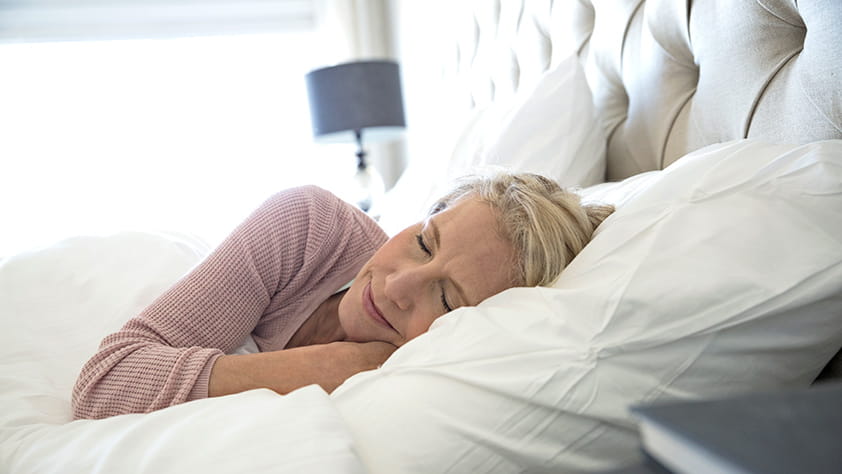In today’s fast-paced world, getting a good night’s sleep can feel more like a luxury than a daily necessity. Whether you’re a sleep-deprived parent, a stressed-out college student, or simply someone who can’t seem to unwind at night, quality rest may seem just out of reach.
According to Dr. Rohin Saroya, a Family Medicine Physician at Bayhealth Primary Care in Smyrna, who also holds a fellowship in sleep medicine, sleep disorders like insomnia affect nearly one in three people. But before you reach for over-the-counter sleep aids, know that sustainable solutions start with healthy habits.
Dr. Saroya shares six expert-backed tips that can help the whole family — from toddlers to grandparents — sleep better. Let’s dive deep into these strategies and how you can implement them starting tonight.

Why Is Quality Sleep So Important?
Sleep is not just about resting — it’s when your body performs essential repairs, consolidates memory, and regulates vital hormones. Chronic lack of sleep has been linked to:
- Weakened immune function
- Increased risk of heart disease and diabetes
- Poor cognitive performance and memory
- Mood disorders like anxiety and depression
In short, getting good sleep is just as crucial as eating a balanced diet or exercising regularly.
Tip 1: Stick to a Consistent Sleep Schedule
Sleep and Wake Up at the Same Time — Even on Weekends
The human body has an internal clock known as the circadian rhythm, which regulates sleep-wake cycles. One of the best ways to support it is by going to bed and waking up at the same time every day — yes, even on weekends.
Keeping your body clock in sync makes it easier to fall asleep and wake up refreshed.
Tip 2: Address Anxiety — But Look at the Bigger Picture
Anxiety vs. Insomnia — Which Comes First?
Many people blame anxiety for their sleepless nights, but the relationship is often a two-way street. Insomnia can fuel anxiety, just as anxiety can interfere with falling or staying asleep.
Dr. Saroya recommends starting with lifestyle and behavioral changes before turning to medication. Techniques like journaling, cognitive behavioral therapy for insomnia (CBT-I), mindfulness meditation, and breathwork can significantly reduce nighttime overthinking.
Tip 3: Eliminate Electronics from Your Sleep Space
How Blue Light Affects Your Sleep
Phones, tablets, and TVs all emit blue light, which mimics daylight and suppresses melatonin — the hormone responsible for sleep.
Create a technology-free zone at least an hour before bedtime. Instead, opt for screen-free activities like reading, light stretching, or listening to calming music.
Tip 4: Avoid Alcohol Before Bedtime
Alcohol Is Not a Sleep Aid — It’s a Sleep Disruptor
While alcohol might initially make you feel drowsy, it disrupts REM sleep, the deepest and most restorative sleep cycle.
If you’re looking for a calming drink at night, try herbal teas like chamomile or valerian root instead.
Tip 5: Watch Your Diet and Evening Meals
Avoid Foods That Trigger Heartburn or Discomfort
Heavy or spicy meals, caffeine, chocolate, and acidic foods like tomatoes can trigger acid reflux or indigestion, making it uncomfortable to lie down and sleep.
Opt for lighter dinners, ideally 2–3 hours before bedtime, and avoid stimulants like coffee and soda after late afternoon. Keep a food diary if needed to track personal triggers.
Tip 6: Get Regular Exercise — But Not Right Before Bed
Timing Your Workouts for Optimal Sleep
Physical activity improves sleep quality — as long as it’s timed right. Exercise raises your core body temperature and heart rate, which can be too stimulating before bed.
Even low-impact activities like walking, yoga, or tai chi during the day can help you sleep more soundly at night.
Frequently Asked Questions:
Q1: How many hours of sleep do adults need?
A: Most adults need between 7 to 9 hours of sleep each night for optimal health and performance.
Q2: What is the best time to go to bed?
A: Ideally, aim to go to bed around 10–11 PM and wake around 6–7 AM, aligning with the natural circadian rhythm.
Q3: Can I catch up on sleep over the weekend?
A: While short-term recovery sleep can help, it’s not a substitute for consistent, high-quality sleep throughout the week.
Q4: Is melatonin safe for regular use?
A: Melatonin can be helpful for occasional use but should not be relied on daily without consulting a healthcare provider.
Q5: How long before bed should I stop using screens?
A: It’s recommended to turn off screens at least 60 minutes before bedtime to reduce blue light exposure.




